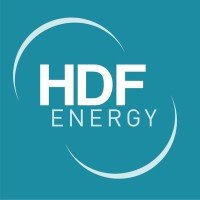Siemens starts work on MW green hydrogen plant in Germany
The WUN H2 project is considered scalable and can easily be transferred to other locations.

Siemens has kicked off building one of the largest green hydrogen projects with a hydrogen generation capacity of 8.75 MW in Wunsiedel, Germany.
The plant’s construction was started through an official groundbreaking ceremony and is set to go into operation in 2022. Bavarian Minister-President Dr Markus Söder inaugurated the plant’s construction ceremony.
The plant will produce up to 1,350 tonnes/year of hydrogen using only renewable energy from solar or wind power. The hydrogen will be supplied for transportation and industry sectors, cutting CO2 emissions by around 13,500 tonnes annually.
The hydrogen will be delivered via truck trailers to local and regional consumers for local distribution, mainly in the regions of Upper Franconia, Upper Palatinate, Thuringia and Saxony and Western Bohemia (Czech Republic).
The plant will be built at Wunsiedel Energy Park and connected to the existing Siemens battery storage facility and adjacent industrial operations, which can use waste heat and the oxygen produced during the electrolysis process. The plant will also support the power grid. There is also an option to install a public hydrogen filling station for trucks and buses at the same location to support carbon-free heavy goods transportation.
Siemens Smart Infrastructure will be the general contractor for the entire plant. Siemens Financial Services (SFS), the financing arm of Siemens, will be responsible for the equity financing and commercial project development and structuring the financing. SFS holds a 45% share in the project’s operating company WUN H2, Rießner Gase GmbH holds 45% and Stadtwerke Wunsiedel (SWW) owns the remaining 10%. SFS could implement non-recourse project financing, i.e. without counter-liability to the shareholders, with UmweltBank as an external lender to secure financing for the project.
Hubert Aiwanger, Minister of Economic Affairs, said, “The WUN H2 project is an important contribution to implementing Bavaria’s hydrogen strategy. Green hydrogen ‘Made in Bavaria’ demonstrates domestic technological expertise and increases acceptance through local value creation.”
Thorsten Glauber, Minister of Environmental Affairs, said, “Hydrogen is a key technology on the road to a climate-neutral future. The energy transition will only succeed if there are many innovative approaches like the one pursued in Wunsiedel.”
Professor Dr Ralf P. Thomas, Siemens CFO, said, “Wunsiedel, with its existing distributed energy system and the use of digital technology, is a lighthouse project for a sustainable energy future.”
Dr Philipp Matthes, MD of WUN H2 GmbH, said, “WUN H2 is a pilot project for Germany that will demonstrate innovative technology in practice and ultimately prove the feasibility of industrial production of green hydrogen.”
